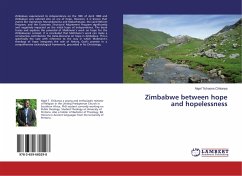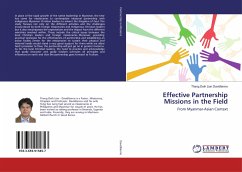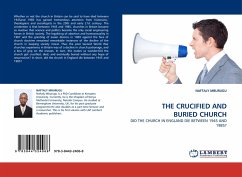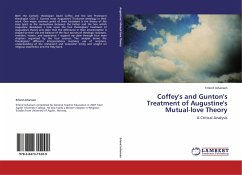
Zimbabwe between hope and hopelessness
Versandkostenfrei!
Versandfertig in 6-10 Tagen
27,99 €
inkl. MwSt.

PAYBACK Punkte
14 °P sammeln!
Zimbabwe experienced its independence on the 18th of April 1980 and Zimbabwe was ushered into an era of hope. However, it is shown that events like Operations Murambatsvina and Makavhotasei, the Land Reform Program, and the Economic Structural Adjustment Program significantly and negatively impacted on the initial hope of independence. The book traces and explores the potential of Moltmann's work on hope for the Zimbabwean context. It is concluded that Moltmann's work can make a constructive contribution the meta-discourse on hope in Zimbabwe. This is specifically the case with reference to th...
Zimbabwe experienced its independence on the 18th of April 1980 and Zimbabwe was ushered into an era of hope. However, it is shown that events like Operations Murambatsvina and Makavhotasei, the Land Reform Program, and the Economic Structural Adjustment Program significantly and negatively impacted on the initial hope of independence. The book traces and explores the potential of Moltmann's work on hope for the Zimbabwean context. It is concluded that Moltmann's work can make a constructive contribution the meta-discourse on hope in Zimbabwe. This is specifically the case with reference to the way in which Moltmann's theology of hope integrates the role of history, God's promise in a comprehensive eschatological framework, grounded in his Christology.












